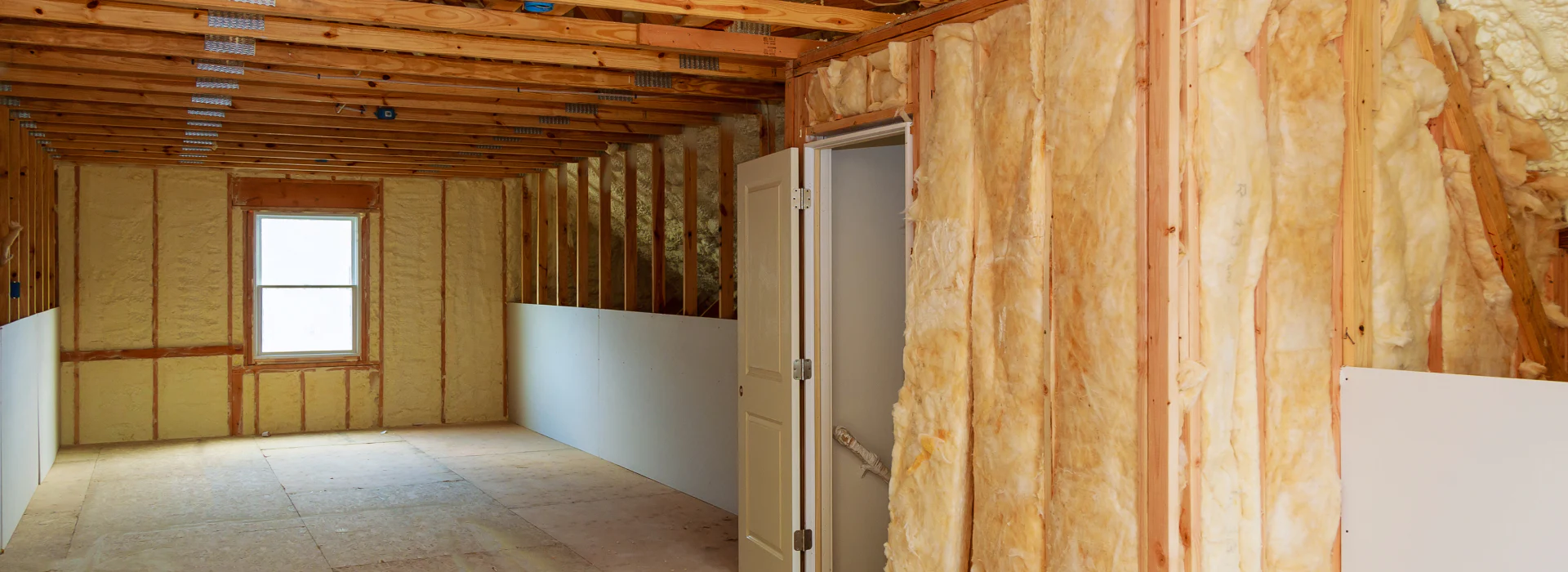FAQ
Energy Services Group FAQ
What type of insulation should I use?
There are many types of insulation, fiberglass, mineral wool. There is also spray foam which is an air sealer and insulation product all in one.
Do I need more insulation?
Currently the tri-state area is calling for R-49 in the attics or about 17 inches of total insulation.
Is my current insulation a health risk?
Not typically. If it is vermiculite, it may contain some asbestos which can cause cancer.
How do I prevent moisture from getting into the insulation?
Moisture on insulation in the attic is usually caused by a roof leak of some hot conditioned air is leaking into the cold attic in the winter months and this will cause condensation to form. It usually starts on the shingle nails and can drip onto the insulation on the attic floor.
Do I need to replace my insulation?
Only if it is contaminated with feces from rodents or is vermiculite which can cause cancer.
What is an energy audit?
An Energy Audit looks at the entire house. From the roof down to the foundation. We record the R values in the home in the attic, walls and on the foundation. We test the efficiency of the heater and the hot water heater. We measure the home to figure out the building air flow standard. A blower door test is performed to see record the building leakage. During cooler months we use a Thermal Camera to check for insulation in the walls and ceilings and to look for framing by passes which can lead to higher utility bills and comfort issues.
How long does an energy audit take?
Usually 2-4 hours.
What is air sealing?
Air sealing is just sealing the areas in a home that lead to infiltration leakage during the seasons. In an existing home it is usually performed in the attics, sealing the drywall to the top plates , capping framing voids, and sealing the penetrations made by the contractors when they ran their materials. (Electric, plumbing and HVAC) and in the basement/crawlspaces, sealing where the house sits on the foundation along with the penetrations. In new construction it is the exterior walls and all penetrations in the home along with the attic and basement/crawl space sealing.
Do I still need to air seal if I have insulation?
Insulation does not stop moving air, (unless it is dense packed). Insulation reduces heat loss only. To get the most return on your investment all homes should be air sealed before adding insulation. Aligning the thermal boundary and the insulation will deliver the most comfortable homes and reduce the cost to condition the home.
Do I need to be home for the new construction inspection?
A new home inspection is to verify the home is properly air sealed and insulated before the drywall is installed. There is no homeowner, or they are not living there if the home is sold. This inspection occurs during the building of the home.
What type of air sealants do you use?
We use closed cell foam to air seal homes mostly, some caulk is used as needed.
Can air sealing really make a difference on my energy bill?
Air sealing is critical to the performance of the home’s heating and cooling. We need to seal the shell of the home before adding the insulation. A home that is only insulated and not air sealed will cost 20-40% more to condition. Air sealing keeps the conditioned air inside and the outside air outside.
Do I need to do anything to prep for an Home energy audit?
Having your utility bills handy is a plus. Having access to attics and crawl spaces is nice so we can get into these places to record the insulation values and to see what is in these areas.
Do you offer free estimates?
Yes we do.
What type of insulation does your company offer?
We use Knauf products mostly, Blown insulation for attic flats and fiberglass batts for framed walls. We also install BIB’s which stands for Blown in blanket, we install a netting over the framed exterior walls then fill the netting with loose fill blown insulation. After the walls are filled, we roll them, so the insulation is flush with the wall framing. We install vinyl blankets of rigid insulation board onto foundations.
What are the benefits of spray foam over blown fiberglass?
Closed cell spray foam provides the air seal and the insulation in one product that can be applied in different thicknesses, to meet the required R value. A combination of closed and open cell foam can be used together to lower the cost in some applications. Spray foam is twice the cost of traditional air sealing and fiberglass batts.
